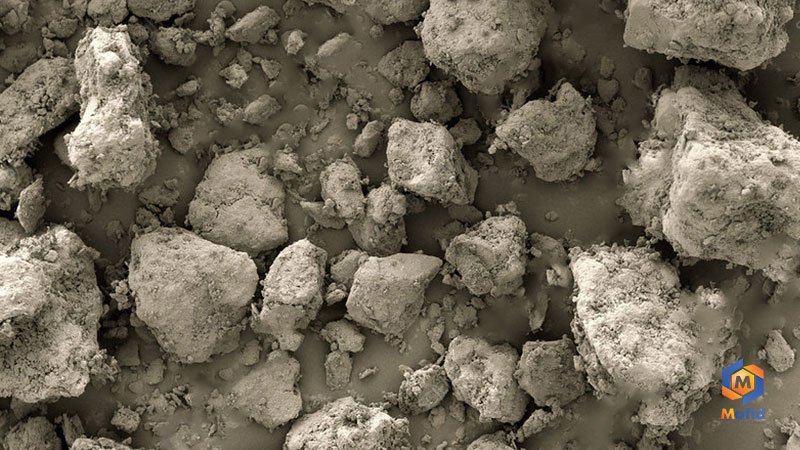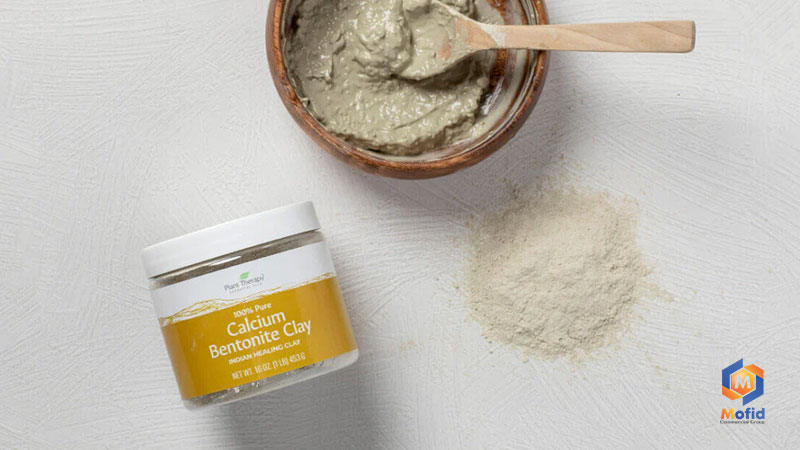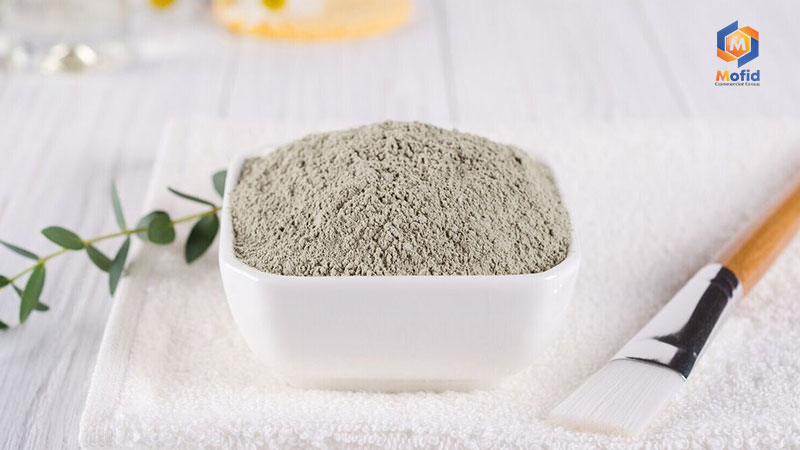What is Calcium Bentonite?
Bentonite is one of the essential minerals forming the Earth’s crust. Based on the formation site and the impurities mixed with it, bentonite is categorized into three main types: calcium bentonite, sodium (or sodic) bentonite, and potassium bentonite. Each type of bentonite has unique properties and functionalities, making it suitable for specific industries. Mofid Export Company, owning a high-quality calcium bentonite mine and having suitable facilities for grinding and sorting, is recognized as one of the well-known producers of calcium bentonite in Iran.
Understanding Calcium Bentonite
A significant feature of calcium bentonite is its high capacity to absorb ions in solutions, such as oils and fats. This noteworthy characteristic has led to the widespread use of calcium bentonite in producing industrial and non-industrial detergents. Moreover, calcium bentonite shares some features with sodium bentonite, such as water absorption. Another outstanding advantage of calcium bentonite is its ability to be converted into sodium bentonite.
To achieve this, a solution containing 5-10% of a sodium salt, such as sodium hydroxide, is added to calcium bentonite, allowing sufficient time for the ions to exchange thoroughly. Calcium bentonite is also known as calcium montmorillonite. This type of bentonite contains both calcium and sodium ions, but calcium ions are predominant. Calcium bentonite is odorless, tasteless, and has an alkaline nature with a pH of approximately 8 or 9 or higher. The main component of bentonite is clay, which has a very soft texture.
Calcium bentonite, also called active bentonite, has extensive applications in construction industries, animal feed, poultry farming, detergent production, cost-effective fillers, creating animal bedding, and more. This bentonite type has a high capacity for absorbing toxins, making it suitable as a skin mask with impressive therapeutic properties, aiding in detoxifying the body. Its softening and detoxifying qualities have historically been used in Iran for hair washing, known by its traditional name Gol Sarshoo.
Properties and Characteristics of Bentonite
Key features of bentonite include:
- Alkaline nature
- pH of approximately 8 to 9
- Odorless
- Tasteless
- Capability to convert calcium bentonite to sodium bentonite
- High levels of negative ions
- Excellent detoxification ability
Applications of Calcium Bentonite

Some of the various applications of calcium bentonite in different industries and fields include:
Role of Calcium Bentonite in Livestock and Poultry Farming
Calcium bentonite acts as a toxin binder, capable of absorbing fungal toxins and neutralizing their harmful effects in animals. Its adhesive properties make it suitable for producing pelleted and granulated feed for livestock. This mineral’s buffering properties prevent acidity in livestock’s digestive systems.
Calcium bentonite reduces bloating, aids digestion, promotes livestock and poultry growth, minimizes ammonia poisoning, and eliminates heavy metals and toxins from the body. In dairy cattle, calcium bentonite significantly enhances milk quality and quantity. For more information, read about bentonite in animal feed.
Use in Detergent, Hygiene, and Cosmetic Industries
In detergent production, this mineral reduces hardness and, due to its compatibility with detergent powders, softens fabrics and facilitates ironing. In hygiene and cosmetic products, calcium bentonite serves as an emulsifier, preventing gelling and sedimentation of materials due to its colloidal structure. This mineral bentonite is utilized in producing sunscreens, lotions, body powders, masks, and cosmetic creams.
Application in Metal Casting Industry
It is suitable for light casting with low thermal capacity. It absorbs ions in solutions and has lower water absorption compared to sodium bentonite. Calcium bentonite, unlike sodium bentonite, absorbs only twice its dry volume in water but can withstand higher pressure and has greater permeability, making it suitable for non-ferrous casting.
Use in Face Masks and Body Detoxification
Bentonite masks, often referred to as clay masks, act as excellent detoxifiers. They absorb toxins, oils, and skin impurities, preventing acne formation. Regular use rejuvenates facial skin, leaving it smooth, young, and acne-free. Bentonite masks are one of the best options for cleansing pores and blackheads, with no adverse effects on any skin type. As cited by SkinKraft:
“It is known for its ability to absorb various toxins, oils, and even bacteria from the skin. You may also use bentonite clay for skin detoxes like armpit detox and foot detox as well.”
Role in Treating Digestive Disorders
Similar to edible calcium carbonate, this mineral can aid in body detoxification. Some believe calcium bentonite alleviates nausea and treats digestive system issues. However, it is essential to ensure the bentonite is purified and suitable for human consumption. Note that edible bentonite differs from industrial and livestock-grade bentonite.
Calcium Bentonite Price
Mofid Trading Company supplies high-quality calcium and sodium bentonite across the country. Equipped with modern machinery and specialized grinders, the factory offers bentonite in various mesh sizes. Calcium bentonite pricing varies based on requested granulation, bag type and weight, and mineral purity. Customers can contact the RayoLife commercial unit for the latest calcium bentonite prices.
Purchasing Calcium Bentonite
This product is supplied as lumps or granulated material by Mofid Company. Various packaging options are available, allowing customers to choose based on their budget. If you are uncertain about selecting the right bentonite type for your application, Mofid’s experts are here to assist.
For buying calcium bentonite or other bentonite types, consider the following:
- Purchasing from reliable and reputable suppliers
- Requesting a product analysis
- Asking for samples if needed
- Reviewing the analysis and testing the sample for the intended application
Final Words
Calcium bentonite is one of the types of bentonite found in nature. Its most significant feature is its high capacity to absorb ions in solutions like oils and fats. Known as active bentonite, it has diverse applications in livestock and poultry farming, detergent and cleaning product manufacturing, casting and metal smelting, and producing lotions and creams. Due to its detoxifying properties, this mineral is also used in hygiene and cosmetic industries


